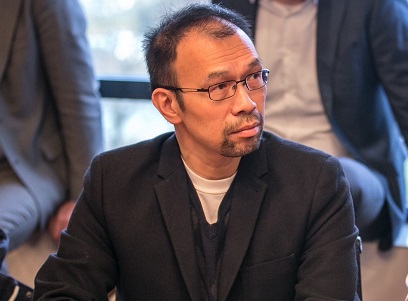Ying Tam, the Halifax entrepreneur and mentor, has been named the head of the Digital Health Cluster at the MaRS Discovery District, the Toronto innovation hub.
Tam is the CEO of Mindful Scientific, which is developing the Halifax Consciousness Scanner, a portable device that can be slipped on to a person’s head to check for brain trauma. The HCS then analyzes the individual’s brain waves to see if he or she has a concussion.
Mindful Scientific is now collecting data on human subjects and will be conducting tests in Halifax and in Toronto from hear on. The work in Toronto is critical because the larger population will allow it to collect more data, said Tam, adding the company will maintain operations in Halifax.
MaRS is a not-for-profit that was founded in 2000 primarily as a life sciences research organization to work with the medical research establishment that flourishes around the intersection of College Street and University Avenue. The group has expanded its mandate so it has special strengths in IT, education technology and ethical businesses. Tam, who will work in the MaRS Health Venture Services, said the group wants to return to its roots and concentrate on expanding its biotech component.
“They have more than 300 life sciences companies so there is really an opportunity to make a big impact, and half of them are digital health companies so that’s 150 companies,” said Tam. “They are looking for thought leadership.”
As an entrepreneur, Tam has worked at the intersection of IT and healthcare. He has overseen three successful IT companies in his career, and brought his experience in digital technologies to the medical device space with Mindful Scientific.
Tam brings several years of mentorship to the new position. He has worked with the Starting Lean program at Dalhousie University, and last year was an Entrepreneur-in-Residence with Propel ICT, the regional accelerator.
Tam is now looking forward to working with a range of digital healthcare companies with the ultimate goal of improving medical services for people.
“I always think we’re so slow in healthcare in adopting technology and we just can’t keep going the way we’re going,” he said. “It’s easier to deliver [a digital solution] than going to a hospital. We have to get things out there.”










